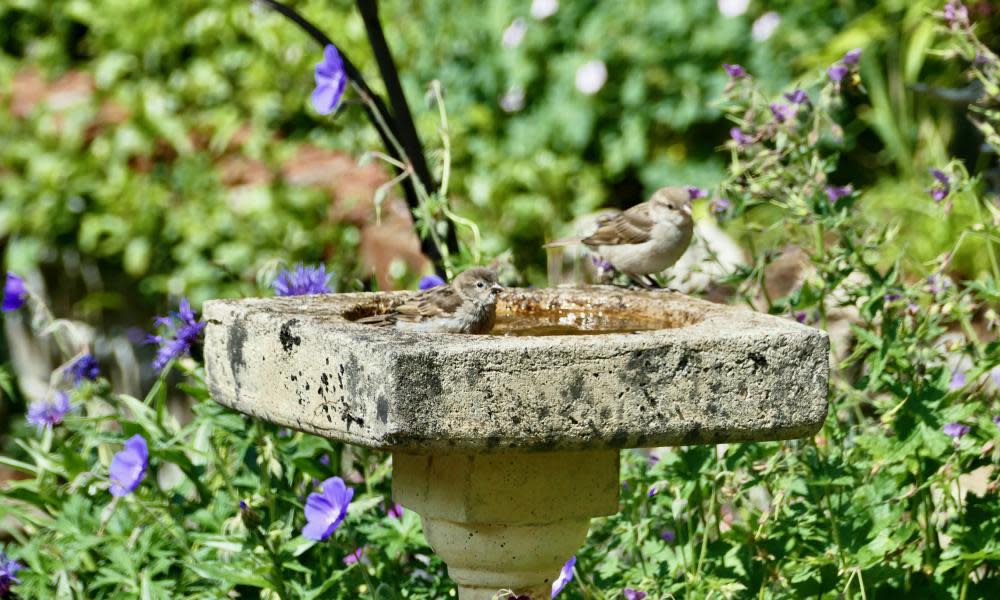Garden pesticides are contributing to British songbird decline, study finds

Gardeners who use pesticides are contributing to the decline of British songbirds, a study suggests.
Scientists have urged people to stop “spraying their gardens with poison” in order to halt bird decline and adopt instead wildlife-friendly practices.
The results of the University of Sussex study, which researchers call the first of its kind, published in the journal Science of the Total Environment, found that gardeners who use pesticides can expect to see fewer birds.
The experiment, which surveyed 615 gardens in Britain, found 25% fewer house sparrows when glyphosate was used regularly. This is an ingredient found in commonly used herbicide brands such as Roundup or Gallup.
Slug pellets also seemed to have an impact on bird sightings; in gardens where metaldehyde slug pellets were used, house sparrow numbers were down by almost 40%.
Researchers drew on data gathered by the British Trust for Ornithology, which organises Garden BirdWatch – a citizen science garden bird recording scheme – and found that 32% of respondents used pesticides on their gardens, and that glyphosate-based herbicides made up 53% of those applications.
Prof Dave Goulson, of the school of life sciences at the University of Sussex, said: “The UK has 22 million gardens, which collectively could be a fantastic refuge for wildlife, but not if they are overly tidy and sprayed with poisons. We just don’t need pesticides in our gardens. Many towns around the world are now pesticide free. We should simply ban the use of these poisons in urban areas, following the example of France.”
The Royal Horticultural Society, the UK’s leading gardening charity, says the use of pesticides and herbicides should be avoided if possible and they should only be used, if ever, in small and targeted applications.
The research also found that those who adopted wildlife-friendly practices such as planting native shrubs and flowers, or digging a wildlife pond, saw more birds than those who did not.
Cannelle Tassin de Montaigu, a PhD researcher within the school of life sciences and an author of the study, said: “It’s encouraging to find that simple measures, such as planting native shrubs and trees and creating a pond, together with avoiding the use of pesticides, really make a measurable difference to the number of birds you will see in your garden.”
Gardeners are an important part of the fight against biodiversity decline; gardens cover an area of about 400,000 hectares (988,421 acres), bigger than all of our national parks. Overall, the UK breeding bird population has fallen by 19 million breeding birds since the late 1960s, and house sparrow populations have fallen by 70% since the 1970s, with the loss of 10.7 million pairs.

 Yahoo Movies
Yahoo Movies 
